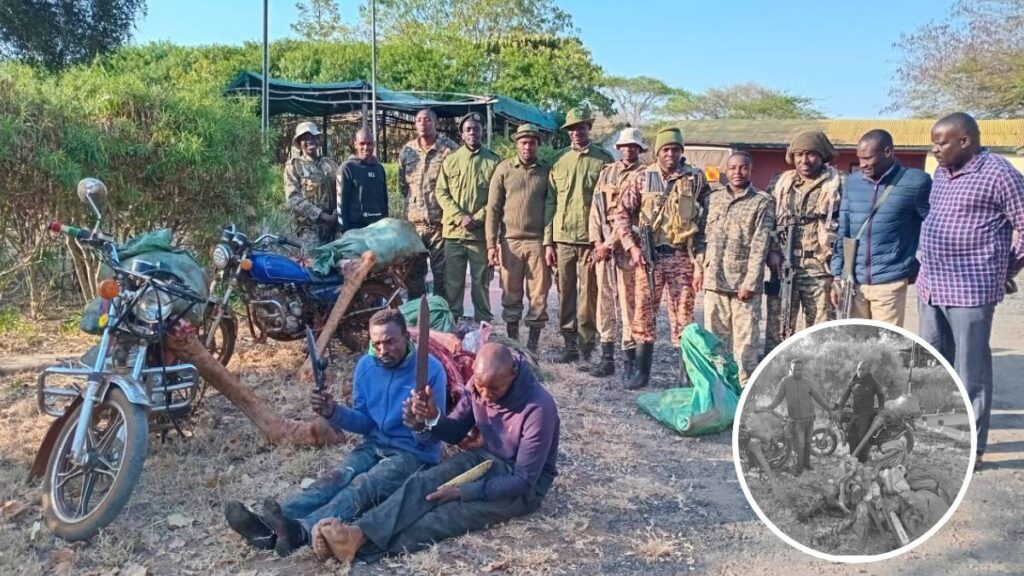Two individuals have been arrested in Makueni County after being caught with giraffe meat, including the animal’s head and legs. The suspects, Maxim Mutunga (52) and Patrick Nyamasyo, were apprehended late on the night of September 26, 2025, by officers from the Kenya Wildlife Service (KWS) at Pamu Station in Kiboko, with support from rangers at Nasaru Conservancy. The pair were transporting the illegal bushmeat on two motorcycles when they were caught in the Masimba area.
In addition to the giraffe meat, which is considered highly valuable in the bushmeat trade, the poachers were also found with machetes, torches, and other equipment commonly used in illegal wildlife hunting. The head and legs of the giraffe were among the items seized, signaling the brutality involved in such poaching activities. A third individual, who was allegedly involved, managed to escape and is currently being pursued by authorities.
Mutunga, one of the arrested suspects, has a history of involvement in wildlife crimes. He had previously been convicted for dealing in bushmeat, and his case is still ongoing in the Kajiado courts. Despite this, he continued to participate in poaching activities, highlighting the persistent threat posed by individuals engaging in illegal wildlife trade.
The trade in bushmeat remains one of the most serious threats to wildlife conservation in Kenya. The Kenya Wildlife Service has noted that regions with high populations of wild animals, such as Tsavo, Mara, Amboseli, Kajiado, and Laikipia, are especially vulnerable to poaching due to the demand for wild meat. Areas like Nairobi, Naivasha, Kiambu, and towns along the Mombasa–Nairobi Highway, including Makueni and Machakos, are known to have thriving markets for such illegal meat.
Under the Wildlife Conservation and Management Act, any person involved in the illegal sale, purchase, or trade of wildlife meat faces severe penalties. Offenders can be sentenced to at least three years in prison, while those who purchase wildlife meat can face fines of up to one million shillings or a jail term of up to twelve months.
The arrest of these poachers sends a strong message about the government’s commitment to fighting wildlife crime. However, it also underscores the need for continued efforts in combatting the bushmeat trade and protecting Kenya’s endangered species from illegal exploitation.

